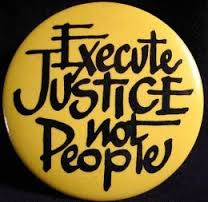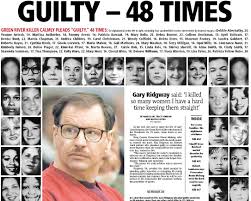 State execution of convicted criminals is a hotly-debated, life-and-death social issue. The subject of capital punishment pushes more emotional buttons than practical ones.
State execution of convicted criminals is a hotly-debated, life-and-death social issue. The subject of capital punishment pushes more emotional buttons than practical ones.
There’s a host of heated arguments to back up each camp’s position.
 The Pros put forward justice, retribution, deterrence, cost-saving, and closure to victims as reasons to carry out the death penalty. The Cons defer to moral, religious, legal, unfair application, and danger of mistake as grounds not to kill condemned prisoners.
The Pros put forward justice, retribution, deterrence, cost-saving, and closure to victims as reasons to carry out the death penalty. The Cons defer to moral, religious, legal, unfair application, and danger of mistake as grounds not to kill condemned prisoners.
So who’s right?
Both, if you listen to the emotional pleas.
But set aside all the teeth-gnashing and hair-tearing and look at the practical benefits of having death penalty legislation.
 It goes without saying that punishment must fit the crime and execution must be reserved for the most despicable of criminals such as child-rapists, serial-killers, and mass-murderers. Some jurisdictions retain the right to execute lesser felons like mutineers, traitors, and spies, however it’s sensible that only exceptionally dangerous people, for whom there’s no chance of rehabilitation, or that their crimes are so horrific that there’s no other just punishment, be executed. Serial killer Theodore (Ted) Bundy is a prime example as well as the terrorists behind the 911 bombings.
It goes without saying that punishment must fit the crime and execution must be reserved for the most despicable of criminals such as child-rapists, serial-killers, and mass-murderers. Some jurisdictions retain the right to execute lesser felons like mutineers, traitors, and spies, however it’s sensible that only exceptionally dangerous people, for whom there’s no chance of rehabilitation, or that their crimes are so horrific that there’s no other just punishment, be executed. Serial killer Theodore (Ted) Bundy is a prime example as well as the terrorists behind the 911 bombings.
There are only two unshakable reasons for the state having and enforcing the power to execute a convicted murderer.
First, it’s an indisputable fact that execution guarantees that person will never re-offend.
 Yes, the counter argument suggests that locking an inmate up for life with no possibility of parole achieves the same end, but it’s not the same thing. There are many cases where a dangerous criminal has escaped or found a legal means to roam free and kill again.Once a killer is dead, that’s the end of their threat to society. Period.
Yes, the counter argument suggests that locking an inmate up for life with no possibility of parole achieves the same end, but it’s not the same thing. There are many cases where a dangerous criminal has escaped or found a legal means to roam free and kill again.Once a killer is dead, that’s the end of their threat to society. Period.
There’s a second practical application of death penalty legislation that few people in the general public think about, but which police officers and prosecutors know to be valid.
 Capital punishment is an effective, persuasive tool in forcing caught killers to co-operate with authorities. Plea-bargains are done with accused murderers where the death penalty is waived in exchange for information. This leads to solving other homicides, recovering bodies, giving closure to victimized families, and studying the minds of these monsters in order to understand and prevent future miscreants. The save-his-life deal with Seattle’s Green River Killer, Gary Ridgeway, paid off big.
Capital punishment is an effective, persuasive tool in forcing caught killers to co-operate with authorities. Plea-bargains are done with accused murderers where the death penalty is waived in exchange for information. This leads to solving other homicides, recovering bodies, giving closure to victimized families, and studying the minds of these monsters in order to understand and prevent future miscreants. The save-his-life deal with Seattle’s Green River Killer, Gary Ridgeway, paid off big.

One of those defence lawyers who vociferously opposed the death penalty was Prime Minister John Diefenbaker. As Prime Ministrr he granted a reprieve to Steven Truscott who had been sentenced to hang for the murder of Lynne Harper. Truscott’s conviction was ultimately overturned on a special appeal in 2007. The evidence against him, especially the expert evidence as to he time of death, was found to be seriously flawed.
As far as any distinction between ‘a’ and ‘all’ reasonable doubt, there is none. It is only if the trier of fact is persuaded of guilt beyond ‘all reasonable doubt’ that a conviction may be entered. This means the trier of fact must acquit if there is any reasonable doubt.
Even if the death penalty should be constitutionally permitted, which is doubtful in light of the U.S. v. Burns (2001), there is no evidence that it is effective as a deterrent. If it was, death penalty states should have lower murder rates than non-death penalty states. They are actually significantly higher.
Andrew Mason
I’ve always thought Steven Truscott was innocent and his conviction/imprisonment was a travesty. Thanks for commenting, Andrew.
As a society we have been executing people for various crimes, including murder, for hundreds if not thousands of years. The one thing we can conclude from the experience is that capital punishment does not work as a deterrent.
Sure, the person executed will not commit another crime, but I suspect that’s more about retribution than justice.
In Australia, which does not have capital punishment, we are currently dealing with the impending execution by Indonesia of two young men, who were convicted several years ago for drug smuggling. That’s supposed to be about deterrence, but Indonesia has executed several others for the same offence since those two were convicted, and there are more in their queue on death row.
Murder and lots of other criminal acts are irrational in nature. Generally, people are not in a rational state of mind when they kill one or more people, and I gather from what our veterans are telling us it’s not a pleasant experience even in times of war.
We leave no opportunity for redemption when we execute, and I don’t buy that line about capital punishment bringing closure. That sounds a lot like claiming that revenge is the only way to closure. What happened to forgiveness?
If someone is designated too dangerous or damaged to be at liberty our challenge is to find a way to isolate them without destroying them. Twenty fives years in the prison system, even in a civilised place like Canada, is not something a rationally minded person would look forward to either, but from my perspective that’s a better option than execution, and a sign that as a society we know something about compassion.
Thank you for your well expressed comment, Peter. I’m of the same opinion about general deterrence. I don’t believe that capital punishment deters anyone except the convicted offender, but a good argument can be made about the effectiveness of putting down an incorrigible and extremely dangerous individual.
I can speak from personal experience as a police officer about causing the death of dangerous people. Although it had to be done, there was nothing pleasant about it. However, that was immediate protection of other lives which is an entirely different matter from due process. I’ve also had personal experience in dealing with people who have committed horrific acts of murder and I can say that forgiveness and compassion are abstract concepts with them because, in reality, these people have absolutely no remorse or any redeeming qualities. They are exceptionally dangerous and deserve to be permanently condemned.
If Canada were to have a referendum on bringing back the death penalty, I’d probably vote ‘No’. It’s not that I have a problem with the justification and mechanics of executing a monster. I just know that the act would never take place because of the complexities of the ‘legal’ system (not the ‘justice’ system) and I have a real problem with feeding valuable resources to a bunch of lawyers rather than dealing with the support of victims and the prevention of crime through improving social welfare.
I totally agree that it is a valuable tool to use as a bargaining chip. And I have. no problem killing a mass murderer. It’s when people are put to death on hearsay or witness testimony that it becomes an issue.
I think that a higher standard of evidence is required in a trial which carries the death penalty. Most of the civilized world uses a jury system which requires a unanimous consensus that guilt has been proven beyond ‘a’ reasonable doubt. I think that where capital punishment is being sought, the burden of proof should be raised to beyond ‘all’ reasonable doubt. Further, the proof must be supported by corroborative physical evidence that would stand alone if all eye and ear witness evidence would be set aside.
I remember a judge once stating that “there’s nothing more unreliable than an eye-witness”. That always stuck with me.